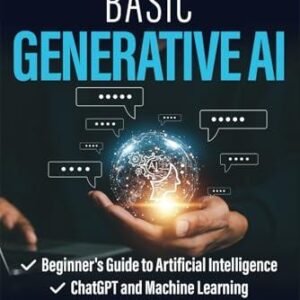In the ever-evolving landscape of technology, few fields have captured the imagination and driven innovation quite like artificial intelligence (AI). At the heart of this revolution lies a myriad of programming languages, each contributing uniquely to the development of AI systems over the decades. From the early days of symbolic processing to the recent surge in machine learning frameworks, the evolution of AI programming languages reflects not just advancements in technology but also shifts in paradigms, methodologies, and the very definition of intelligence itself. In this article, we embark on a journey through time, exploring the pivotal languages that have shaped AI development and the milestones that have marked its transformation from a nascent idea into a powerful force that is reshaping industries and our day-to-day lives. Join us as we delve into the history of AI programming languages and uncover the foundational tools that have enabled the remarkable capabilities we see today.
Table of Contents
- The Dawn of AI Programming Languages: From Symbolic AI to Early Innovations
- The Rise of Machine Learning: Languages That Shaped Modern AI Development
- Key Features of Popular AI Programming Languages: A Comparative Analysis
- Future Trends in AI Programming Languages: Recommendations for Emerging Developers
- Future Outlook
The Dawn of AI Programming Languages: From Symbolic AI to Early Innovations
The journey of AI programming languages commenced with Symbolic AI, a paradigm that emphasized the manipulation of symbols to solve problems. Pioneers like John McCarthy and his team at MIT laid the groundwork by developing LISP in 1958, a language designed to process symbolic information efficiently. This era heralded the birth of knowledge representation and inference mechanisms, enabling systems to mimic human reasoning. Early programs like ELIZA showcased the potential of these languages, engaging users in conversation by manipulating strings of text based on predefined rules. The influence of LISP can still be seen today, as its recursive functions and list processing features provided a robust foundation for subsequent AI developments.
As the field evolved, the 1970s and 80s witnessed the emergence of prolog, a logic programming language that facilitated a different approach to AI, focusing on rule-based logical deduction. Prolog’s ability to express relationships and queries in a declarative manner allowed for more sophisticated reasoning applications. During this time, other significant innovations included Smalltalk and CLIPS, which introduced object-oriented programming and production rule systems, respectively. These developments not only advanced AI application in various domains but also influenced the evolution of modern languages. The interplay between these early innovations laid the groundwork for the rich landscape of AI programming languages we see today, fueling advancements that continue to shape technological progress.
The Rise of Machine Learning: Languages That Shaped Modern AI Development
The journey of artificial intelligence has been profoundly influenced by an array of programming languages, each contributing to the evolution of machine learning. Lisp, one of the earliest languages designed for AI, introduced features like recursive algorithms and list processing, which became foundational in AI research. Then came Prolog, which offered powerful capabilities for symbolic reasoning and logic programming, making it a preferred choice for expert systems. Today, as the discipline of machine learning has broadened, languages such as Python have risen to prominence due to their simplicity and the vast ecosystem of libraries like TensorFlow and PyTorch that streamline the development process.
Other significant languages have also played their part in shaping modern machine learning practices. R has established itself as a leading language for statistical analysis, providing extensive packages that cater to data manipulation and visualization. Similarly, languages like Julia are gaining traction due to their high-performance capabilities, especially in numerical and computational tasks crucial for AI. The following table highlights the key languages, their main features, and their contributions to AI:
| Language | Main Features | Contribution to AI |
|---|---|---|
| Lisp | Recursive functions, list processing | Foundation for AI research |
| Prolog | Symbolic reasoning, logic programming | Expert systems development |
| Python | Simplicity, extensive libraries | Machine learning and AI frameworks |
| R | Statistical analysis, data visualization | Data manipulation and exploration |
| Julia | High performance, mathematical computing | Numerical solutions in AI |
Key Features of Popular AI Programming Languages: A Comparative Analysis
The landscape of AI programming languages has matured significantly, with various languages emerging to cater to distinct aspects of artificial intelligence. Python stands out as a dominant choice due to its simplicity and extensive libraries, making it ideal for beginners and researchers alike. Its TensorFlow and Keras libraries provide powerful tools for machine learning and neural network implementations. On the other hand, R has carved a niche in statistical analysis and data visualization, making it invaluable for data-driven AI projects. Additionally, Java offers solid performance and portability, especially in enterprise-level applications, while its vast ecosystem of libraries and frameworks like Deeplearning4j facilitates deep learning.
Other languages like LISP and Prolog continue to hold historical significance, often being associated with symbolic AI and rule-based logic programming. While they may not be the first choice for modern AI development, their foundational principles have inspired many contemporary languages. Here’s a quick comparison of the key features of these popular AI programming languages:
| Language | Key Features | Common Use Cases |
|---|---|---|
| Python | Easy syntax, rich libraries (TensorFlow, PyTorch) | Machine learning, data analysis |
| R | Statistical computing, data visualization | Data analysis, bioinformatics |
| Java | Performance, portability, large ecosystem | Enterprise AI solutions, large-scale applications |
| LISP | Symbolic processing, rapid prototyping | Research in AI, natural language processing |
| Prolog | Logic programming, rule-based systems | Expert systems, automated reasoning |
Future Trends in AI Programming Languages: Recommendations for Emerging Developers
As artificial intelligence continues to evolve, the programming languages that support these advancements show promising trends. Python, with its extensive libraries and community support, is likely to remain a dominant choice due to its ease of learning and versatility in machine learning applications. JavaScript is also emerging as a key language, particularly in developing AI-enhanced web applications, mainly through frameworks such as TensorFlow.js. Furthermore, specialized languages like Julia and R are gaining traction among data scientists for their powerful data manipulation capabilities, making them ideal for statistical modeling and analysis in AI projects.
Looking ahead, emerging developers should focus on mastering not only traditional programming languages but also keeping an eye on new entrants in the field. Understanding domain-specific languages (DSLs) can be immensely beneficial, as they are designed for specific types of tasks and can significantly speed up development time in AI frameworks. Additionally, languages that facilitate concurrent programming, like Go and Rust, are becoming increasingly important, especially for applications requiring high performance and scalability. Here’s a quick comparison table showcasing these languages and their notable features:
| Language | Key Features |
|---|---|
| Python | – Extensive libraries – Easy to learn – Strong community support |
| JavaScript | – AI on the web – Popular frameworks – Real-time applications |
| Julia | – High-performance – Designed for data science – Numerical analysis |
| Go | – Efficient concurrency – Great for cloud services – Simple syntax |
| Rust | – Memory safety – Performance optimization – Growing community |
Future Outlook
the journey of AI programming languages mirrors the broader evolution of technology itself—dynamic, innovative, and deeply intertwined with human creativity. From early symbolic languages that laid the groundwork for artificial reasoning to modern frameworks that harness the power of machine learning and neural networks, each era has contributed to the rich tapestry of AI development. As we reflect on this progression, it becomes evident that the advancements in programming languages are not merely technological achievements; they are tools that empower researchers, developers, and visionaries to bring their ideas to life.
As we stand on the brink of a new era in artificial intelligence, understanding the history of its programming languages equips us with invaluable insights into what lies ahead. The tools we develop today will shape the AI innovations of tomorrow, and we must remain mindful of the lessons learned as we continue to push the boundaries of what is possible. Whether you are an enthusiast, a professional in the field, or simply a curious reader, the narrative of AI programming languages offers a glimpse into a future filled with potential and opportunity. Thank you for joining us on this exploration of AI’s fascinating evolution. Stay curious and keep coding!





